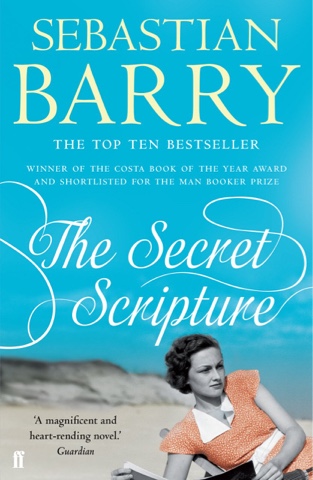Ireland certainly has a rich literary tradition. Knowing where to start on a booklist of Irish fiction is hard, knowing where to stop is even harder.... But here is a round - up of some great reads either set in Ireland, or written by Irish authors.
The Secret Scripture, by Sebastian Barry
This is the moving story of Roseanne McNulty who has spent many decades in a mental institution. Desperately sad and very moving, it is also utterly compelling. The reader simply has to find out what happened to Roseanne and how she ended up in the mental institution. And Barry's prose is beautiful.
The Picture of Dorian Gray, by Oscar Wilde
A chilling classic. I am sure you are all familiar with the story line... The painting in the attic grows old, while Dorian Gray himself stays young. Definitely worth a read though as we go on a tortuous journey of guit and self discovery with the protagonist. It is also very short, so it is a classic you can tick off very quickly!
History of the Rain, by Niall Williams
This book is a glorious exploration of the English language and the impact of literature on our lives. Ruth is dying, confined to bed and desperate to find out her father's story, through family history and the incredible number of books he owns. Niall Williams writes beautifully- many pages were reread simply to savour his turn of phrase. There are many tragedies in this book and it is very sad, but there is also a good deal of humour. The people and places of the west of Ireland are so well captured. It is an affectionate and memorable novel.
The Thing About December, by Donal Ryan
This is a very touching and poignant novel that takes us through a year in the life of Johnsey, a man a little different and apart from everyone else, struggling to find his place in the world after the deaths of his parents who had always protected him from the harsher realities of life. Set admidst the boom years of the Celtic Tiger Johnsey is pursued by people desperate to buy up the land he has inherited while he flounders in grief and self doubt. The characters are beautifully drawn and there are moments of almost heartbreaking tenderness. The sense of time and place is a real feature too Ryan really captures the minutiae of life in small town Ireland.
The Wonder, by Emma Donoghue
Truly gripping, this is the story of a girl in the Irish Midlands in the middle of the 19th century who has become a wonder through having eaten nothing for months. An English nurse arrives in the village, employed to keep a watch on the girl and finds herself battling to save her life. The tension in this novel is incredible and keeps the reader turning the page, long into the night....
Rachel's Holiday, by Marian Keyes
It's easy to dismiss Marian Keyes work as "chick lit" and pass it over, but you would be missing out. Her writing is laugh out loud funny and her characters are entirely believable. This book is the story of Rachel, whose use of recreational drugs has got out of hand, and her time spent in rehab. It is funny, moving, and quintessentially Irish whilst also opening the reader's eyes to the nature of addiction and challenging stereotypes about addicts. When you have read it you will want to seek out Keyes' other books about the Walsh family.
Dubliners by James Joyce
I studied this book at A-level, and although it is a book that benefits from being "studied", it is probably the most accessible of Joyce's work and a good starting point. If you have a study guide on hand at the same time, you may get more from it, particularly with regard to the complex metaphors and imagery but it is also worth just getting lost in the words and transported to another time and place - Dublin in the early 20th century. It is essentially a collection of short stories but there are recurring themes and characters that crop up in more than one story. It seems bleak and there are not many likeable characters, but if you want to give Joyce a go, then this is a good place to start.
The Woman who Walked into Doors and Paula Spencer by Roddy Doyle
These two books are fantastic, both as an extended character study of the eponymous Paula Spencer and as a social history of working class Dublin in the 80s, 90s and 2000s. When we first meet Paula she is an alcoholic victim of domestic abuse and the books take us on her journey as she begins to recover from both. It is an amazing achievement by Doyle to take on the voice of this female character so completely. The subject matter is fairly bleak, but there is hope and Paula's indomitable character shines through.
And I am hearing such good things about the gritty Dublin Murder Squad series by Tana French that they are right up there on my to-read list.
Which Irish books would you recommend?















